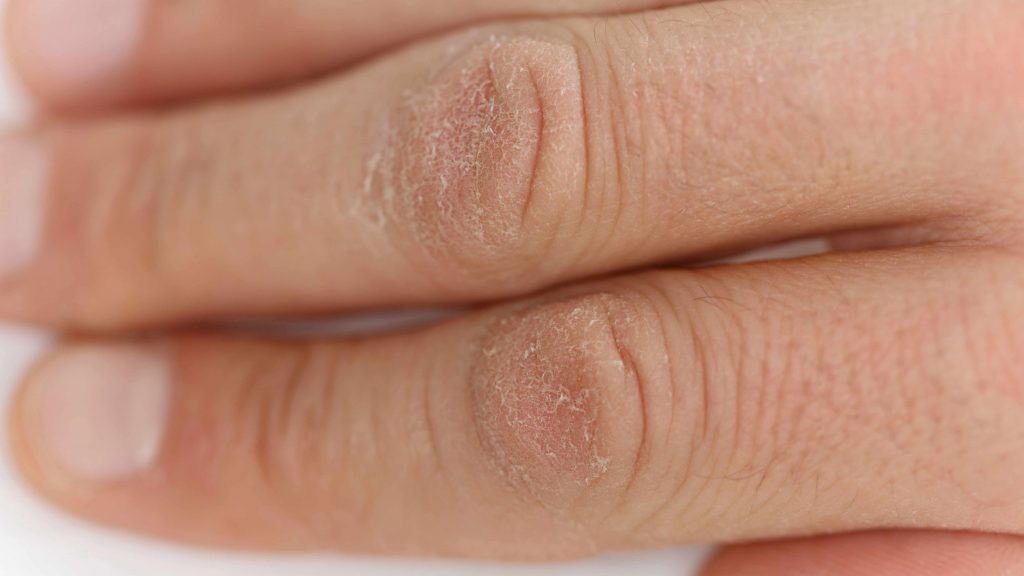-
Mayo Clinic Minute: Winter skin protection tips
Winter weather changes can negatively affect the skin — the body's largest organ.
Colder temperatures and a lack of moisture in the air can damage unprotected skin, especially on the face and hands.
Journalists: Broadcast-quality video pkg (0:59) is in the downloads at the end of the post. Please courtesy: "Mayo Clinic News Network." Read the script.
They're the wounds in an annual battle with dry winter air.
"When the temperature drops, the humidity tends to drop with it," says Dr. Dawn Davis, a Mayo Clinic dermatologist. "And, so, naturally your skin dehydrates."
Dr. Davis says hands are especially vulnerable to cracks and cuts that can put you at risk for infection.

"So the use of winter clothing is very helpful to help slow or delay or prevent evaporation off the skin surface," says Dr. Davis.
If that's not enough, Dr. Davis suggests one of three categories of moisturizers: ointments, which contain oil; creams, which have oil and water; and lotions, which are generally water-based.
"If your skin is extremely raw, you may want to start with ointments," says Dr. Davis.
Once skin improves, rubbing in a hypoallergenic, fragrance-free cream or lotion, may provide enough moisture to prevent further problems.
"And, remember, these products only last for a few hours at maximum," says Dr. Davis. "So you really need to hydrate and moisturize at minimum two to three times daily."
Related posts:
- Is the extreme cold bad for your lungs?
- Mayo Clinic Minute: Do you need more vitamin D in the winter?
- Mayo Clinic Minute: Atopic dermatitis triggers and treatment
Related Articles







